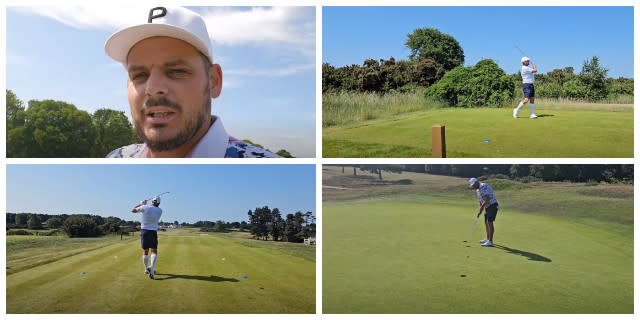
The Longest Playoffs in Golf History
It may have taken 80 holes over four days to ultimately separate them, but it was Harris English who survived an eight-hole playoff to finally overcome Kramer Hickok and win the Travelers Championship.
A dramatic marathon, it was an event that essentially became a matchplay tournament as both players matched each other blow for blow. Such a lengthy duel is rare in the modern game, but it isn't unprecedented, or indeed even a record.
We take a look back at some of the longest playoffs in professional golf history.
Sudden Death Playoffs
In terms of sudden death playoffs - like that between English and Hickok - the longest on record in a professional event came at the Pepsi-Wilson Tournament on the Japan Golf Tour in 1976, where Peter Thomson, the legendary five-time Open champion, defeated Graham Marsh, Brian Jones and Shozo Miyamoto after 14 HOLES!
Ironically, the event had actually been reduced to 54 holes of regulation play due to rain. Miyamoto was eliminated after the first hole, Jones after four, but Marsh pushed the Australian icon far beyond extra time.
On the PGA Tour in 1949, major champions Lloyd Mangrum and Cary Middlecoff were declared co-winners by mutual agreement due to darkness after 11 extra holes at the Motor City Open.
In 1972, Jo Ann Prentice needed 10 playoff holes to defeat LPGA legends Kathy Whitworth and Sandra Palmer, while in 1989 on the European Tour, playing a loop of the 16th, 17th and 18th holes at Kennemer, Jose Maria Olazabal beat Ronan Rafferty after nine holes at the Dutch Open, with Roger Chapman having been eliminated early.
In 2012, after nine playoff holes, Jiyai Shin made par on the 16th to beat Paula Creamer at the Kingsmill LPGA.
Alongside English and Hickok, eight additional holes have been needed on several occasions on the PGA Tour, most recently when John Huh defeated Robert Allenby at the Mayakoba Golf Classic in 2012. Notably, it took eight holes for Lee Elder to deny the great Lee Trevino at the Greater Milwaukee Open in 1978.
Pernilla Lindberg won the ANA Inspiration in 2018 following a three-player sudden-death playoff that extended to eight extra holes.
Many will also recall when Tiger Woods defeated Jim Furyk after SEVEN playoff holes at the WGC Invitational in 2001.
Longer Format Playoffs
Back in the day, the major championships favoured exceptionally long playoff formats. When Gene Sarazen defeated Craig Wood at the Masters in 1935, and making his albatross on the 15th, it was over 36 holes. Likewise, the Open Championship was determined by two extra rounds for generations, dating back to when Willie Fernie defeated Bob Ferguson at Musselburgh in 1883. Some 80 years later, Bob Charles won at Royal Lytham & St Annes by overcoming American Phil Rodgers after 36 extra holes.
However, the longest playoff ever - of any type - came at the US Open in 1931. Billy Burke needed 72 holes (!!!) to defeat George Von Elm. They were tied after 72 holes of regulation play, returning the next day for 36 extra holes, where unbelievably they still couldn't be separated. Without any provision for a sudden death decider, they went back out the following morning for ANOTHER 36 holes.
That day, Burke won by ONE SHOT. After 144 holes of golf, Burke was on 589 to Von Elm's 590. How about that!
Fortunately, as the years progressed, the championships either adopted sudden-death or shorter aggregate playoffs, with the US Open eventually dropping its 18-hole playoff in 2018, a decade after Tiger Woods famously needed 19 holes to beat Rocco Mediate at Torrey Pines.
So, Harris English and Kramer Hickok kept us captivated for a while, but in years eras past, it could have been even longer.

Be part of the action with a selection of unique golf tournament experiences, from playing in a pro-am with the stars to watching the action at golf’s most illustrious events. Whether it’s the Masters or The Open, The Ryder Cup or WM Phoenix Open, build your own bespoke package with the experts at Golfbreaks.com.
Tags: PGA Tour FedEx Cup european tour daily picks









